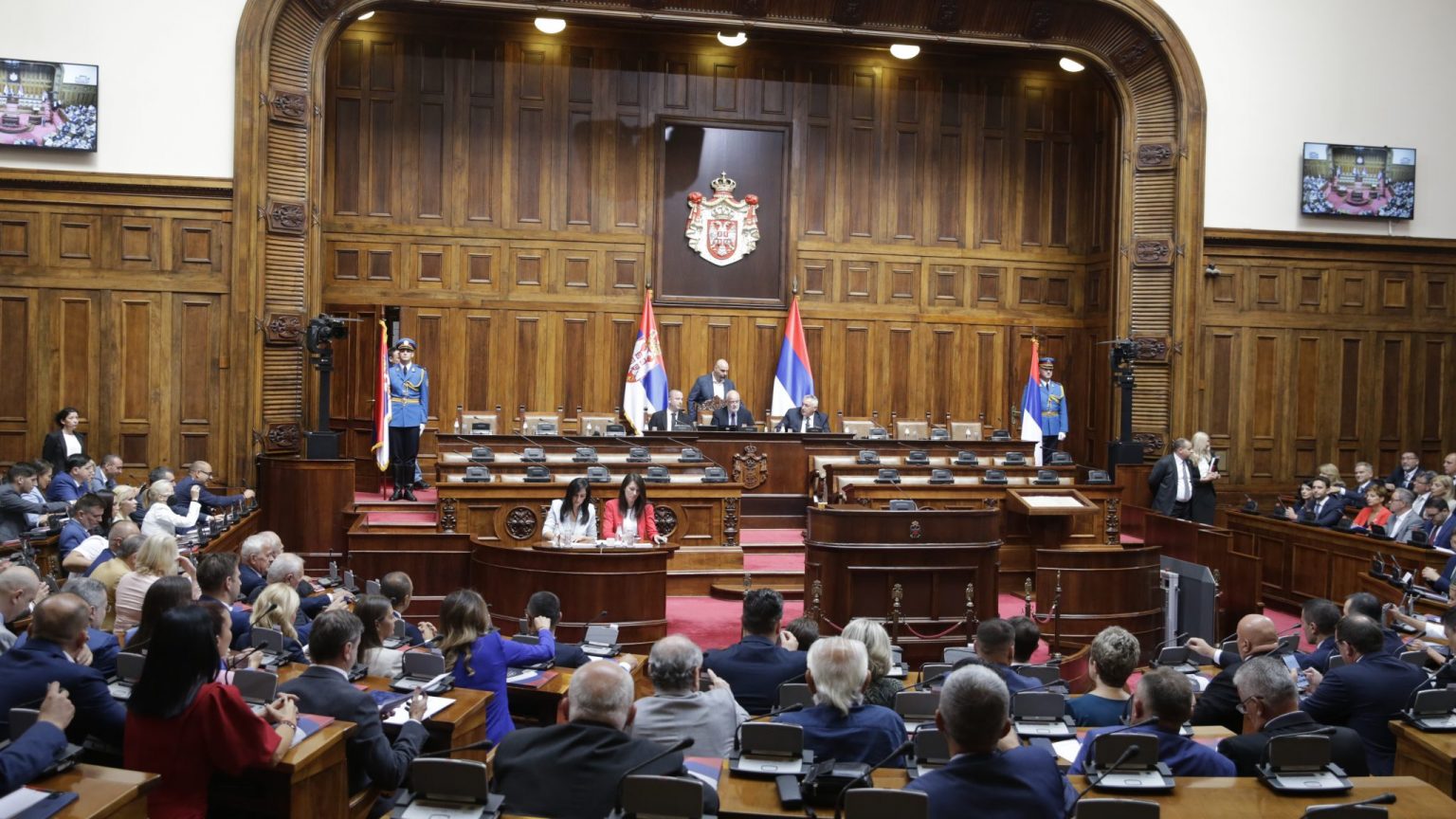Serbia’s path toward the European Union has slowed sharply amid growing concerns over democratic backsliding, weak rule of law, and resistance to aligning with EU foreign policy, the European Commission said in its 2025 Enlargement Report released in Brussels on November 4.
The EU executive said that while Serbia “remains formally committed” to joining the bloc, its “overall pace of reform slowed” and key areas such as electoral integrity, judicial independence, and media freedom continue to deteriorate. Brussels also criticised Belgrade for its failure to align with EU sanctions against Russia, describing Serbia’s stance as “increasingly incompatible” with the Union’s common foreign and security policy.
Flawed elections and democratic erosion
The report found that Serbia’s December 2023 parliamentary and local elections were marked by serious irregularities, including misuse of public funds, pressure on voters, and widespread bias in media coverage. Opposition parties and independent monitors alleged systemic manipulation, while recommendations from the OSCE and EU observer missions remain largely unimplemented.
“Elections were competitive but took place in a context of overwhelming advantage for the ruling party,” the Commission said, noting that the dominance of the ruling Serbian Progressive Party (SNS) has “eroded democratic checks and pluralism.”
Parliamentary oversight of the executive was described as weak, with opposition parties boycotting several sessions in protest at what they called a “rubber-stamp legislature.” Reports of intimidation during Belgrade’s repeated local elections in 2024 further underscored concerns over democratic standards.
Reforms to strengthen judicial independence remain largely on paper. Although Serbia adopted constitutional amendments in 2022, implementing legislation has stalled, leaving judges and prosecutors vulnerable to political influence. The judiciary continues to lack transparency, and the track record on corruption and organised crime “remains limited.”
“High-level corruption cases are rare and selectively prosecuted,” the report said, adding that “impunity persists at senior levels of government.” The Agency for Prevention of Corruption operates with limited powers, while public procurement remains opaque, particularly in large infrastructure projects involving Chinese and Emirati investors.
Media capture and shrinking civic space
The European Commission voiced strong concern over the deteriorating environment for media freedom. Pro-government tabloids and television networks dominate the airwaves, spreading disinformation and running smear campaigns against critical journalists and NGOs.
Independent media outlets face financial pressure and harassment, while the media regulator, REM, “fails to ensure political balance or sanction abuses.” Civil society organisations critical of the government have been subjected to smear campaigns and intrusive financial inspections.
“Freedom of expression remains under severe strain,” the Commission said, warning that the lack of media pluralism “undermines democratic accountability.”
Serbia’s alignment with the EU’s Common Foreign and Security Policy (CFSP) dropped to just 54%, the lowest among all enlargement candidates. Belgrade continues to resist joining EU sanctions against Russia, maintaining close political and energy ties with Moscow.
The report also criticised Serbia for failing to implement obligations under the EU-mediated Ohrid Agreement with Kosovo. The dialogue process “remains stalled,” while political rhetoric on both sides has further strained relations.
On the economic front, Serbia retained macroeconomic stability but faced slowing growth, rising inflation and weak public investment oversight. Fiscal discipline deteriorated amid increased social spending ahead of local elections.
Still, the Commission acknowledged progress in digitalisation and e-governance, highlighting the rollout of electronic tax systems and digital IDs. Serbia also continued to cooperate closely with EUROPOL and EUROJUST in combating cross-border crime.
Mixed signals from Brussels
The EU noted Serbia’s progress in technical chapters on taxation, customs and transport, as well as its continued participation in regional initiatives such as the Open Balkan and CEFTA agreements. But it warned that “political will to deliver meaningful reforms remains insufficient.”
The European Parliament and OSCE joined the Commission in voicing alarm over what they described as “creeping authoritarianism” and “state capture.” Transparency International said Serbia’s corruption index stagnated for a fourth year, while Reporters Without Borders noted “intensified hostility toward independent journalists.”
While Serbia remains formally among the most advanced EU candidates, the tone of Brussels’ assessment has hardened. “Democratic institutions remain under pressure, the rule of law is weak, and foreign policy misalignment is growing,” the report concluded.
Analysts warn that unless Belgrade restores democratic checks, tackles corruption, and aligns its policies with EU principles, its accession process could effectively freeze. As one EU diplomat put it, “Serbia is standing still while the region is moving forward.”



